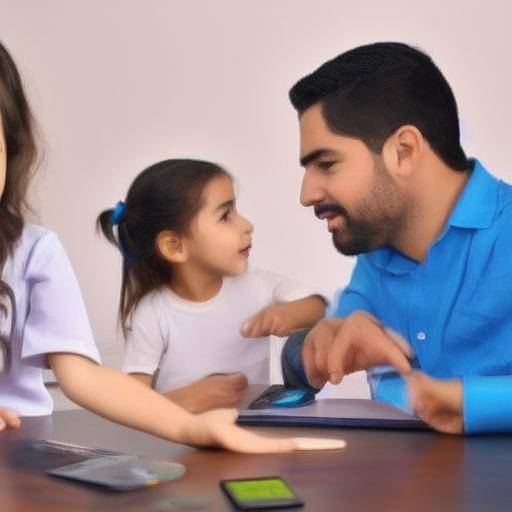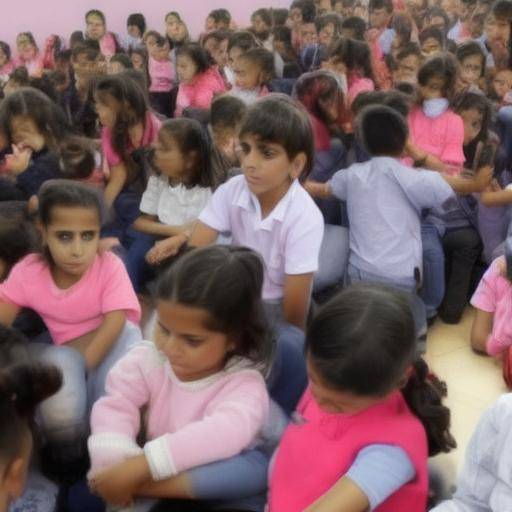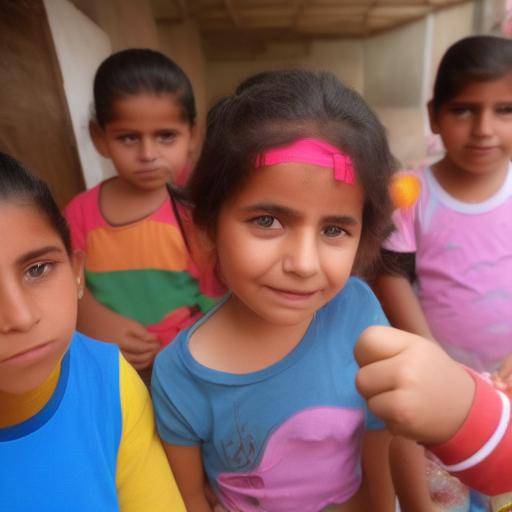
Introduction
Teaching children about the value of work and money is crucial for their personal development and future financial stability. The concepts of responsibility, effort and reward play a fundamental role in this education. In this article, we will explore practical advice and effective strategies to inculcate these values in children. From the importance of starting early to how to incorporate lessons on money into everyday life, we will discover how to form solid financial bases in our children.
History and Background
The value of work and money has evolved throughout history. From agricultural societies to the industrial era, work has been fundamental to human progress. In the past, the relationship between effort and reward used to be more direct, and teaching children about the value of work and money was an integral part of daily life.
In the 21st century, the way we perceive work and money has changed dramatically. Globalization, technology and the digital economy have transformed the way we work and earn revenue. Currently, financial education is essential to prepare children for a world full of opportunities, but also of economic challenges.
Deep analysis
The concept of responsibility is fundamental to teaching children about the value of work and money. Inculcating responsibility involves teaching them to assume the consequences of their actions and decisions. From household tasks assigned to the administration of their own money, to give them responsibilities according to their age prepares them to understand the value of effort and reward.
Effort is the key to achieving goals and getting rewards. Teaching children to strive for what they want, whether academically, in their extracurricular activities or in household tasks, allows them to internalize the direct relationship between the invested effort and the results obtained. Reinforcing the importance of effort gives them the tools to face challenges with determination and persistence.
The reward, for its part, is the result of effort and dedication. It is crucial that children understand that rewards not only refer to money, but also to recognition, personal satisfaction and skills development. Teaching them to value and enjoy the rewards obtained through work gives them a balanced and healthy perspective on money and invested effort.
Exhaustive examination
The implementation of educational strategies on the value of work and money is crucial to your understanding. From school programmes dedicated to financial education to practical activities at home, there are various ways to teach children about these values. A combination of theoretical and experiential learning provides a holistic understanding.
Experts agree that open and honest communication is fundamental to teaching children about the value of work and money. Talking about the importance of savings, financial planning and responsible decision-making provides them with the tools necessary to face financial challenges in the future.
Comparative analysis
Regarding the relationship between responsibility, effort and reward, it is important to highlight how these values are interconnected. Responsibility provides the basis for effort, while sustained effort leads to rewards. This relationship is reflected in many aspects of life, from academic performance to participation in sporting or artistic activities.
Daily examples, such as fulfilling school and domestic responsibilities, can serve as opportunities for children to understand the relationship between effort and reward. Recognizing and commending their efforts gives them motivation and reinforces the interwork, dedication and achievements connection. It is also important to teach them to manage frustration or failure as an inherent part of the process, encouraging perseverance and finding solutions.
Practical Tips and Accessible Tips
- Allocation of responsibilities: Provides tasks appropriate to the age of your children, such as ordering your room, helping in preparing simple meals or caring for pets. This helps them understand the importance of assuming responsibilities.
- involve them in family financial decisions: As they grow up, involving them in planning family budgets, purchases and savings will show them the importance of making financial decisions.
- Promoting savings: Teach them to save part of their money, either weekly pay or sporadic income, for their short- and long-term goals.
- Strengthening recognition of efforts: Celebrates its achievements, whether academic, sports or social, to strengthen the positive relationship between effort and reward.
Industry Councils and Expert Reviews
Financial education experts stress the importance of providing real examples and practical cases to teach about the value of work and money. The early introduction of financial concepts, the establishment of achievable financial targets and the emphasis on informed decision-making are key elements in preparing children for future financial responsibilities.
Cases and Applications in Real Life
A practical example can be to assign children a personal project that requires effort and dedication over a period of time, such as caring for a garden, undertaking a small business selling home products or participating in community work. These experiences will give them a practical understanding of work, effort and reward, while strengthening their sense of responsibility and commitment.
Future Trends and Predictions
The future scenario suggests greater integration of financial education into school curricula, as well as a continuous approach to the development of financial skills through digital resources and interactive applications. Understanding responsibility, effort and reward is expected to continue to evolve to adapt to changes in the global economy and financial technology.
Conclusion
Teaching children about the value of work and money through the pillars of responsibility, effort and reward is crucial for their development and future financial success. Providing them with the necessary tools and knowledge from an early age allows them to acquire a positive and responsible perspective on work and finance. By fostering understanding of these values and providing them with practical activities, we are laying the groundwork for them to become financially cunning and ethically responsible adults.
Frequently asked questions
How old can you start teaching children about the value of work and money?
It is advisable to start introducing basic concepts about work, effort and savings from preschool age, adapting lessons to your level of understanding.
What is the best way to teach children about the relationship between effort and reward?
Providing practical examples, commending their achievements and celebrating their efforts are effective strategies to teach them the relationship between effort and reward.
How can I teach my children about financial responsibility?
Involving them into family financial decisions, assigning them tasks related to the care of their belongings and allowing them to manage a small amount of money are effective ways of teaching them financial responsibility.
What is the importance of teaching children about savings from early on?
Teaching them to save from early age instills in them the habit of saving, teaches them to prioritize their expenses and gives them the basis for responsible financial management in the future.
What role do praise and recognition play in teaching the value of work and money?
Recognition of children ' s efforts reinforces the positive relationship between work, effort and reward, stimulating their motivation and commitment.
What are some practical activities I can offer my children to teach them about the value of work?
Activities such as the care of a pet, the management of a small entrepreneurship, or the cultivation of a garden provide opportunities to teach children about the value of work and effort.
How can I help my children set attainable financial targets?
Initiating discussions on financial targets, involving them in setting targets and supporting them in planning to achieve these goals are effective ways of helping children establish attainable financial targets.
In short, education on the value of work and money through responsibility, effort and reward is an invaluable investment in the future of children. By providing them with a strong understanding and practical experiences, we are training them to successfully manage their resources and make informed financial decisions throughout their lives.
















